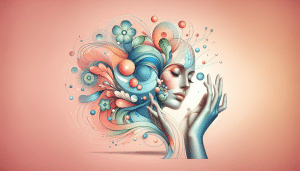How Creating a Daily Ritual Promotes Mental Wellness
Ella Knight August 8, 2025
In today’s fast-paced world, many of us are struggling to manage the increasing demands of life. Stress, anxiety, and overwhelming workloads often take a toll on our mental health. While there are numerous quick fixes available, one of the most effective ways to maintain mental wellness is surprisingly simple: creating a daily ritual.
Daily rituals—simple, consistent practices that become part of our routine—help promote mental well-being. Research shows that establishing such rituals can reduce stress, improve mindfulness, and boost emotional health. The best part? These rituals don’t require a lot of time or expensive tools. They simply need to be consistent, intentional, and meaningful.
This article will explore the benefits of daily rituals for mental wellness, current trends surrounding them, and practical tips to help you create your own rituals for a healthier, more balanced mind.

Why Daily Rituals Are Essential for Mental Wellness
A daily ritual is a practice or routine that you engage in each day. These rituals could be as simple as enjoying a cup of tea or writing in a journal. The most important element is consistency. These small, repetitive actions are not just habits; they help provide structure, calm the mind, and create clarity in the midst of our busy lives.
1. Promoting Mental Clarity and Focus
One of the primary benefits of daily rituals is the mental clarity they provide. With constant distractions and information overload, our minds can become cluttered, making it difficult to focus. A study published in Psychology Today revealed that engaging in rituals—whether physical or mental—helps reduce anxiety and organize chaotic thoughts. By incorporating a ritual into your day, you create a routine that centers your mind, allowing you to focus on one task at a time and be present in the moment.
Additionally, daily rituals bring a sense of predictability to our lives, which can help combat feelings of uncertainty or anxiety. Over time, this sense of consistency fosters a more focused and grounded mind.
2. Building Mindfulness and Presence
Daily rituals naturally create opportunities for mindfulness. Mindfulness has been shown to reduce anxiety, enhance emotional regulation, and improve overall well-being. A study from The Journal of Positive Psychology found that practices like mindful walking, meditation, or journaling foster mental clarity, reduce stress, and increase overall happiness.
By setting aside time each day for an intentional ritual, you are giving your mind the space to practice mindfulness. Whether you’re meditating, practicing deep breathing, or just enjoying a quiet moment, these rituals train your brain to be present. This increased awareness contributes significantly to improving mental wellness.
3. Reducing Stress and Building Emotional Resilience
Another key benefit of daily rituals is their ability to reduce stress and improve emotional resilience. Life often brings unexpected challenges, and how we respond to them depends on our ability to manage stress. Engaging in regular rituals, even simple ones like stretching or breathing exercises, helps train our minds to handle stress better.
Research has shown that engaging in mindfulness-based rituals can lower levels of cortisol, the body’s stress hormone, thus reducing stress and enhancing emotional resilience. A regular practice helps you stay grounded and calm, even when life becomes overwhelming.
Current Trends in Mental Wellness Rituals
As mental health becomes a focal point in many people’s lives, certain trends are emerging around daily rituals for wellness. These trends highlight how these rituals contribute to better mental health and offer new, accessible ways for individuals to incorporate them into their routines.
1. Digital Detox Rituals
With the constant bombardment of emails, texts, and social media notifications, many are turning to digital detox rituals to preserve their mental well-being. Digital detox involves limiting screen time, setting boundaries around phone use, or designating certain times of the day to disconnect from technology.
Research from JAMA Psychiatry suggests that digital detox practices can significantly reduce anxiety, improve sleep, and foster greater mental clarity. By eliminating the distractions of the digital world, you give your mind the opportunity to relax and refocus on more important tasks and experiences.
2. Morning and Evening Routines
Establishing morning and evening rituals has gained traction as a way to start and end the day with intention. Morning rituals, such as enjoying a warm beverage, journaling, or practicing yoga, can set a positive tone for the day. Evening routines like reading, meditating, or reflecting on the day’s events allow individuals to wind down and prepare for restful sleep.
Studies, including one from The Journal of Applied Psychology, show that individuals with consistent morning and evening routines report better mental well-being, reduced anxiety, and improved job satisfaction. These rituals provide balance and structure, helping people feel more in control of their day.
3. Gratitude Practices
Gratitude journaling has emerged as a popular mental wellness ritual. Writing down things you are grateful for each day helps shift your focus from negative thoughts to positive ones, fostering a more optimistic mindset. Research published in The Journal of Social and Clinical Psychology found that practicing gratitude can improve emotional health by reducing stress and promoting feelings of happiness.
By integrating gratitude into your daily ritual, you can improve both your mental wellness and overall outlook on life. This small act helps train your mind to focus on the positive, which can significantly reduce stress and increase happiness.
How to Create a Daily Ritual for Mental Wellness
Creating a daily ritual for mental wellness doesn’t have to be complicated. The best rituals are simple, consistent, and customized to suit your needs. Here are some practical steps to help you design your own ritual:
1. Start Small with Clear Intentions
Begin by choosing a ritual that is simple and easy to maintain. Your ritual should have a clear intention, whether it’s reducing stress, cultivating mindfulness, or increasing gratitude. For example, you might start your day with five minutes of deep breathing, or write down three things you are grateful for before bed.
2. Make It Consistent
Consistency is key. Select a time that works for you—whether it’s in the morning, during lunch, or before bed—and stick to it. This consistency helps form a routine, making it easier to engage in the ritual without thinking about it. Over time, it will become a natural part of your daily life.
3. Choose Something You Enjoy
To ensure that your ritual is sustainable, choose activities you genuinely enjoy. Whether it’s a warm cup of tea, a short walk in nature, or reading a favorite book, make sure your ritual is something that brings you peace and joy. If you look forward to it, you are more likely to make it a consistent part of your routine.
4. Track Your Progress
It can be helpful to track your mental well-being over time. Keep a journal to note how you feel before and after engaging in your ritual. Tracking your emotions can help you assess the effectiveness of your ritual and identify areas where it may need adjustments.
5. Incorporate Mindfulness
Mindfulness plays an essential role in mental wellness. Consider integrating mindfulness practices into your ritual. Whether through deep breathing, mindful walking, or meditation, being present in the moment can enhance your mental clarity and emotional resilience.
Conclusion
Daily rituals offer a simple yet powerful way to promote mental wellness. By engaging in consistent, intentional practices—such as mindfulness, gratitude journaling, or a digital detox—you can reduce stress, improve emotional regulation, and enhance your overall well-being. The true power of rituals lies in their ability to create mental clarity, calm, and focus, allowing you to approach life with a grounded and centered mindset.
As awareness of mental health continues to grow, incorporating daily rituals into your routine has become a popular and effective trend. These rituals provide structure, balance, and clarity, which ultimately foster happiness and well-being. By prioritizing mental wellness through consistent, enjoyable rituals, you can experience lasting benefits for both your mind and body.
Reference
- The Hidden Power of Daily Rituals, http://hbr.org
- Rituals Reduce Anxiety & Enhance Control, https://www.asteroidhealth.com
- Power of Routine: Predictability Supports Well-Being, https://www.nm.org







